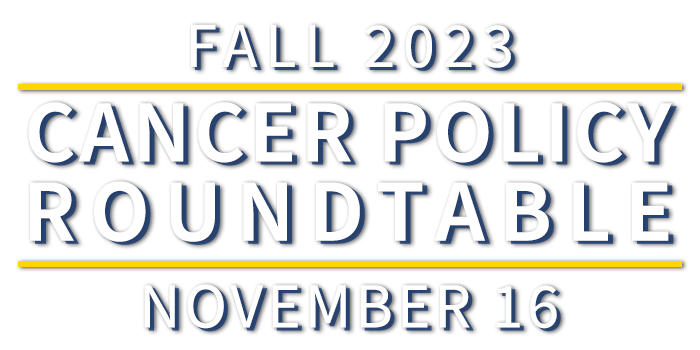Fall 2023 Cancer Policy Roundtable
Since 1986, NCCS has been a trusted source in the cancer community and a leading voice in the field of cancer survivorship. For more than 20 years, NCCS has hosted twice yearly Cancer Policy Roundtable (CPR) meetings, convening diverse stakeholders to discuss pressing cancer policy issues.
NCCS convened another successful Cancer Policy Roundtable on Thursday, November 16, 2023, with esteemed speakers from the Johns Hopkins School of Medicine and Bloomberg School of Public Health, Centers for Medicare and Medicaid Services (CMS), KFF, and the Brookings Institution, as well as clinicians, patient advocates, and policy experts. Topics included the survivor’s perspective, implementation and innovation for the Inflation Reduction Act, patient-centered research and practice, Medicare Advantage plans, and cancer drug shortages.
Sessions
Survivor Perspective: Katrece Nolen
Cancer Survivor and Author
Summary
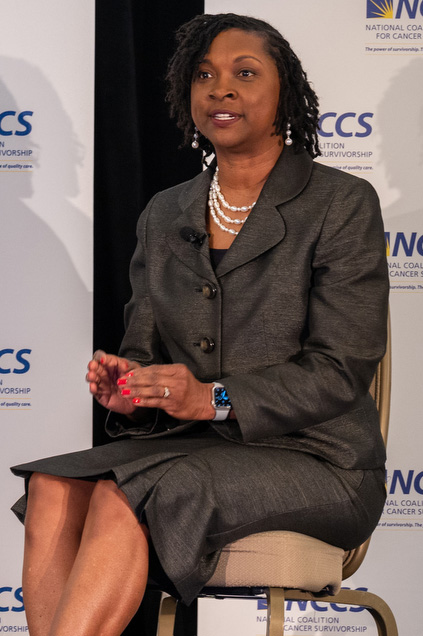 Survivor and author Katrece Nolen opened the2023 Fall Cancer Policy Roundtable by sharing the survivor perspective, recounting her lived experience and lessons learned as a 10-year survivor of inflammatory breast cancer. Katrece discussed the importance of self-advocacy, trust, networking, and connection in overcoming obstacles to care.
Survivor and author Katrece Nolen opened the2023 Fall Cancer Policy Roundtable by sharing the survivor perspective, recounting her lived experience and lessons learned as a 10-year survivor of inflammatory breast cancer. Katrece discussed the importance of self-advocacy, trust, networking, and connection in overcoming obstacles to care.
Reflecting on her own self-advocacy, Katrece said she had to learn to advocate for herself from the moment she noticed a change in her body and as she tried to see a provider to receive a diagnosis. Katrece recounted the many challenges she experienced when entering and navigating the health care system, which ultimately led to a cancer diagnosis at just 37 years old. She also stressed the need for change in the health care system and advocated for a better patient experience for cancer patients from the moment they encounter the system.
Katrece discussed the importance of having a support system, consisting of family, friends, or even networks like patient advocacy groups, advocates, or fellow church members. She especially emphasized the importance and power of social media networks, which helped her navigate her own diagnosis. These connections helped her realize that she was not alone, and they ultimately encouraged her to find a specialist in inflammatory breast cancer, which is a rare and aggressive cancer. She said, “Social networking saved my life!”
Importantly, Katrece encouraged cancer survivors to admit when they need help and accept it. She shared her mother’s words: “You have to accept help because then you can take that energy and apply it towards your treatment. And, who knows, that ability for others to bless you may help bless somebody else in the future.”
Katrece Nolen – Cancer Survivor and Author
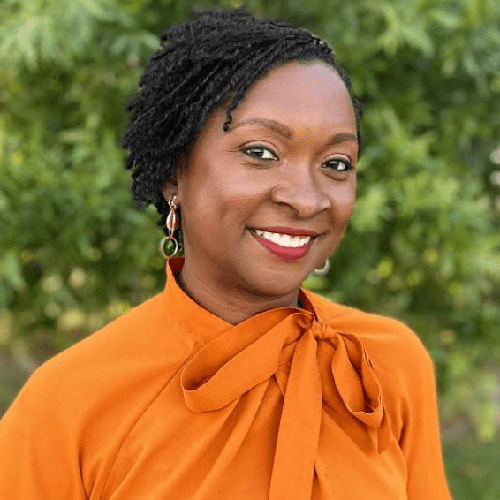 Katrece Nolen
Katrece Nolen
Cancer Survivor and Author
Katrece Nolen has a considerable amount of compassion for patients who are fighting cancer. As an eight-year survivor of Stage-3 Inflammatory Breast Cancer, and as a cancer coach and cancer advocate, she shares her strategies with other survivors who may be feeling isolated and uncertain after initial diagnosis through the completion of treatment and transition into a “new normal.” She lives in the Washington, D.C. metro area with her husband and three children. For more information visit www.katrecenolen.com.
Inflation Reduction Act – Implementation and Innovation
Panel Discussion
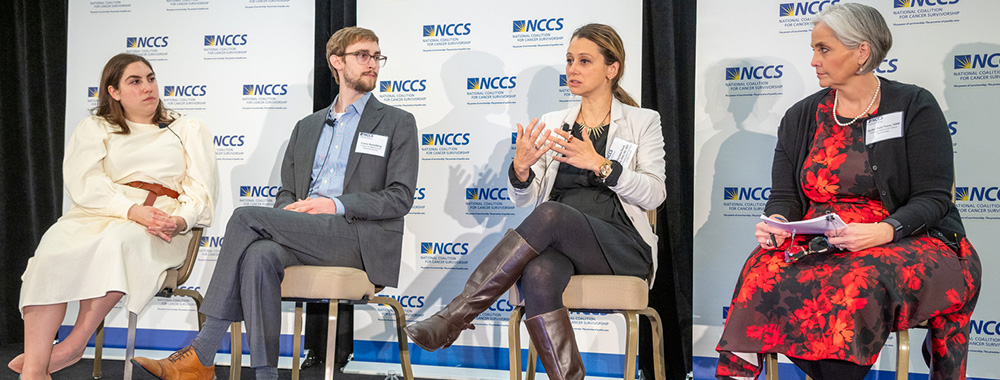
Policy Advisor
DLA Piper
Mariana Socal, MD, PhD, MS, MPP
Associate Scientist
Johns Hopkins Bloomberg School of Public Health
Deputy Director, Division of Drug Price Negotiations
Centers for Medicare and Medicaid Services
Shelley Fuld Nasso, MPP (Moderator)
NCCS CEO
Summary
About the Panel Speakers
Rachel Portman, MS – DLA Piper
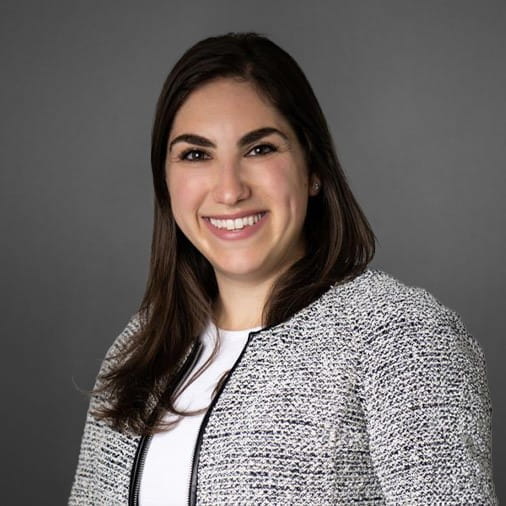 Rachel Portman, MS
Rachel Portman, MS
Policy Advisor, DLA Piper
Rachel Portman’s deep health care policy, management and technical experience is highlighted by a career in the US Senate and private-sector consulting.
Rachel most recently served as the Deputy Health Policy Director for the Senate Health, Education, Labor and Pensions (HELP) Committee for former US Senator Richard Burr, where Rachel oversaw the development and passage of the PREVENT Pandemics Act, which made significant changes to our nation’s public health emergency preparedness and response framework taking in to account lessons learned from the COVID-19 pandemic. Prior to this role, Rachel covered Senator Burr’s health care portfolio as a member of the Senate HELP Committee, Senate Committee on Finance and Senate Special Committee on Aging. She also led policy development for the Senator’s welfare and childcare portfolios, including final passage of the Family First Prevention Services Act, the most comprehensive child welfare reform law in decades.
In both roles, Rachel was responsible for overseeing multiple policy areas as an advisor on the full health care portfolio ranging from Medicare and Medicaid policy to policies and programs affecting our nation’s public health agencies, such as the Food and Drug Administration (FDA), Centers for Disease Control and Prevention (CDC) and the National Institutes of Health (NIH).
In the six years that Rachel worked on Capitol Hill, she met daily with executive-level management and principals across the health spectrum, as well as providers and patients, explaining how policy will impact or affect their company or interests in both the short- and long-term. She is also skilled in reviewing new legislative opportunities from varying stakeholder perspectives and working with colleagues on both sides of the aisle and both chambers of Congress to have bills signed into law. These include topics ranging from ensuring federal regulatory agencies have the necessary architecture to study, review, approve and pay for 21st century advances in science and technology, to obtaining accountability from federal public health agencies, and improving our nation’s biodefense preparedness and response framework.
Rachel excels at reviewing, aggregating and analyzing large data sets and transforming the analysis into digestible and insightful deliverables for both internal and client-facing use.
Corey Rosenberg – Centers for Medicare and Medicaid Services
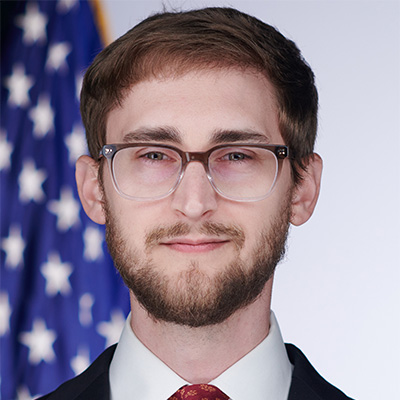 Corey Rosenberg
Corey Rosenberg
Deputy Director, Division of Drug Price Negotiations
Centers for Medicare and Medicaid Services
Corey Rosenberg is a Deputy Division Director within the Medicare Drug Rebate and Negotiation Group (MDRNG) at CMS, which was created to implement the new provisions dedicated to inflation rebates and drug price negotiation under the Inflation Reduction Act of 2022 Prior to this role, Corey served as Deputy Director of the Division of Financial Risk and as Model Lead for the ACO Realizing Equity, Access, and Community Health (REACH) Model and the Global and Professional Direct Contracting (GPDC) Model at the Center for Medicare and Medicaid Innovation.
Prior to joining CMS, he worked as a Director on the Corporate Strategy team at Fresenius Medical Care and at L.E.K. Consulting, serving a wide variety of payer and provider clients. Corey holds a Bachelor’s degree in Psychology from Harvard University.
Mariana Socal, MD, PhD – Johns Hopkins Bloomberg School of Public Health
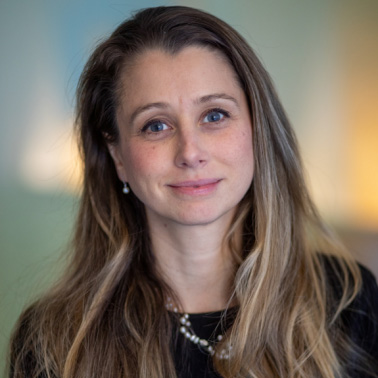 Mariana Socal, MD, PhD, MS, MPP
Mariana Socal, MD, PhD, MS, MPP
Johns Hopkins Bloomberg School of Public Health
Mariana Socal, MD, PhD, studies ways to make the US pharmaceutical market more competitive, delivering drugs of greater value for lower costs to the American people.
Dr. Socal’s research focuses on improving pharmaceutical access and affordability. Specific topics include understanding biosimilar adoption, improving FDA regulation for follow-on products, and reducing spending on drugs that cost significantly more but have comparable clinical profiles to their competitors. Dr. Socal has testified before the U.S. Congress on drug pricing and the provisions established in Build Back Better and H.R.3. Dr. Socal also testified at the Food and Drug Administration on issues related to biopharmaceutical regulation, including insulins. Dr. Socal has advised several state initiatives to reduce drug spending, such as the California Generic Drugs Initiative. At Hopkins, Dr. Socal teaches courses on U.S. Pharmaceutical Policy and the U.S. Healthcare System. Dr. Socal is a physician trained in adult Neurology. She holds a Master’s in Public Policy from Princeton University and a PhD in Public Health/Health Systems from Johns Hopkins University.
Shelley Fuld Nasso, MPP – NCCS CEO
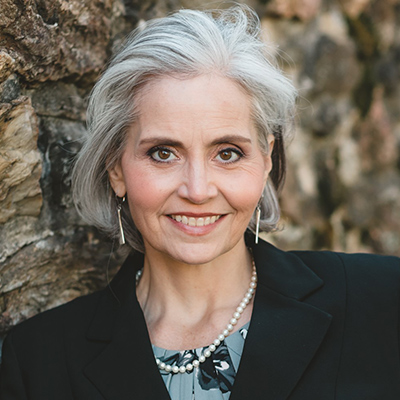 Shelley Fuld Nasso, MPP has served as Chief Executive Officer of NCCS since October 2013. Prior to joining NCCS, Shelley served in leadership roles at Susan G. Komen, where she leveraged Komen’s grassroots network in Washington, DC, and in state capitals. Under her leadership, Komen successfully secured $80 million in state funding for cancer screening and treatment for uninsured and under-insured women.
Shelley Fuld Nasso, MPP has served as Chief Executive Officer of NCCS since October 2013. Prior to joining NCCS, Shelley served in leadership roles at Susan G. Komen, where she leveraged Komen’s grassroots network in Washington, DC, and in state capitals. Under her leadership, Komen successfully secured $80 million in state funding for cancer screening and treatment for uninsured and under-insured women.
Shelley has also served as Director of Community Philanthropy at The Dallas Foundation and held management positions at communications and technology enterprises. She is a graduate of Rice University and holds a Master of Public Policy from the Harvard Kennedy School.
Shelley’s commitment to the work of NCCS is strongly tied to the experiences in the cancer care system of her dear friend, Dr. Brent Whitworth, a beloved physician who was diagnosed with stage IV cancer days before his 42nd birthday and who passed away 19 months later. Through Brent’s experiences, Shelley witnessed the strengths and flaws of the cancer care system and embraces the notion that policy change can make cancer care better for patients and caregivers.
Shelley and her husband Michael live in Maryland and are the parents of three young boys.
Patient-Centered Research and Practice: The PROTEUS Consortium
Claire Snyder, PhD
Professor, Johns Hopkins School of Medicine
Principal Investigator, The PROTEUS Consortium
Summary
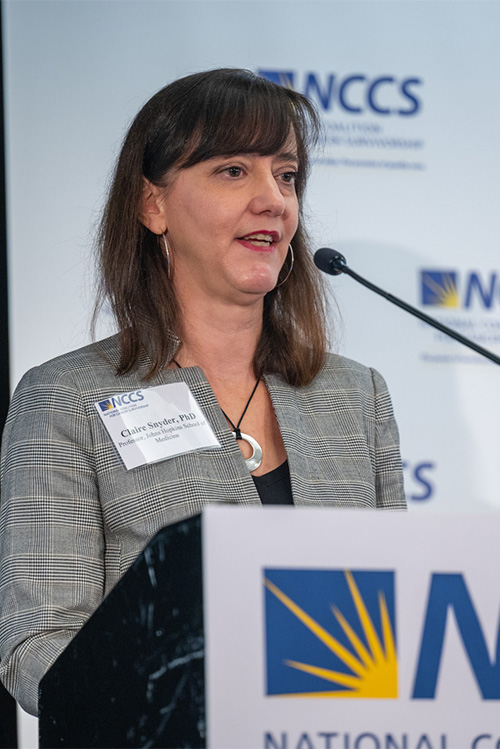 Dr. Claire Snyder, a pioneer in patient-centered outcomes research, delivered the keynote address titled “Patient-Centered Research and Practice: The PROTEUS Consortium.” The presentation detailed her work leading the PROTEUS Consortium to help ensure that patient-reported outcomes (PROs) are incorporated in clinical trials and clinical practice. Dr. Snyder has been at the forefront of engaging with the advocacy community to ensure that her research is meaningful and relevant to cancer patients and survivors. Dr. Snyder’s innovative knowledge translation efforts are helping to ensure that rigorous research can be applied in practice and that patient data can inform clinical decision-making by creating user-friendly tools and resources.
Dr. Claire Snyder, a pioneer in patient-centered outcomes research, delivered the keynote address titled “Patient-Centered Research and Practice: The PROTEUS Consortium.” The presentation detailed her work leading the PROTEUS Consortium to help ensure that patient-reported outcomes (PROs) are incorporated in clinical trials and clinical practice. Dr. Snyder has been at the forefront of engaging with the advocacy community to ensure that her research is meaningful and relevant to cancer patients and survivors. Dr. Snyder’s innovative knowledge translation efforts are helping to ensure that rigorous research can be applied in practice and that patient data can inform clinical decision-making by creating user-friendly tools and resources.
During her presentation, Dr. Snyder emphasized what drives her work, stating, “This is why I get up in the morning and this is why I do my work, because I think it’s really critically important that how patients feel drives their care.” She explained that PROTEUS first focused on the use of PROs in clinical trials and later expanded its focus to the use of PROs in clinical practice. The program’s objective is to ensure that patients, clinicians, and other decision makers have the information from the patient perspective to make the best decisions they can about treatment options.
Dr. Snyder also presented evidence of the benefits of using PROs in clinical practice. She explained that research has consistently shown that collecting PROs in a clinical setting can facilitate patient-clinician communication.
About Claire Snyder, PhD, MHS
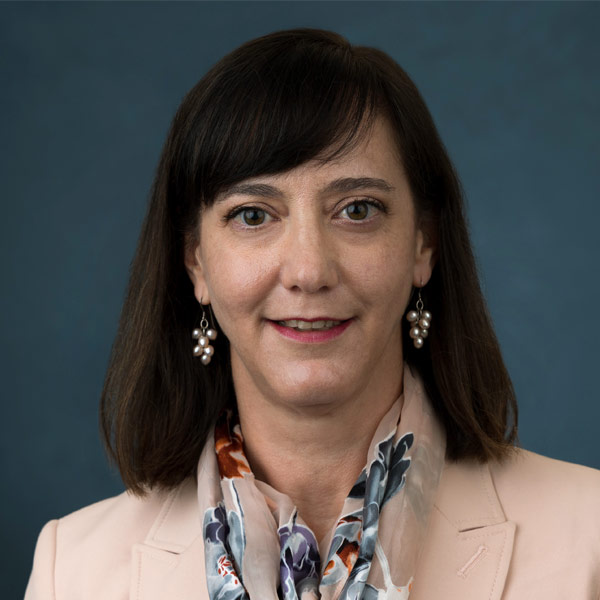 Claire Snyder, PhD, MHS
Claire Snyder, PhD, MHS
Professor, Johns Hopkins School of Medicine
Principal Investigator, The PROTEUS Consortium
Dr. Snyder’s research focuses on the quality of cancer care, with emphasis in two areas: quality of life for cancer patients and cancer survivorship care. She is Director of the Johns Hopkins Program for Building Lifestyle, Outcomes, and Care Services Research in Cancer (BLOCS). She is widely published in high-impact journals and has received competitive, peer-reviewed funding from the National Cancer Institute, American Cancer Society, and Patient-Centered Outcomes Research Institute. Dr. Snyder has held various leadership positions in international organizations focused on quality-of-life and quality-of-care. She is a past president of the International Society for Quality of Life Research. For the American Society of Clinical Oncology (ASCO), she served on the Health Services Committee, Quality of Care Committee, Survivorship Care Planning Task Force, and Patient-Reported Outcomes Panel.
Medicare Advantage: Access and Quality for Cancer Care
Panel Discussion
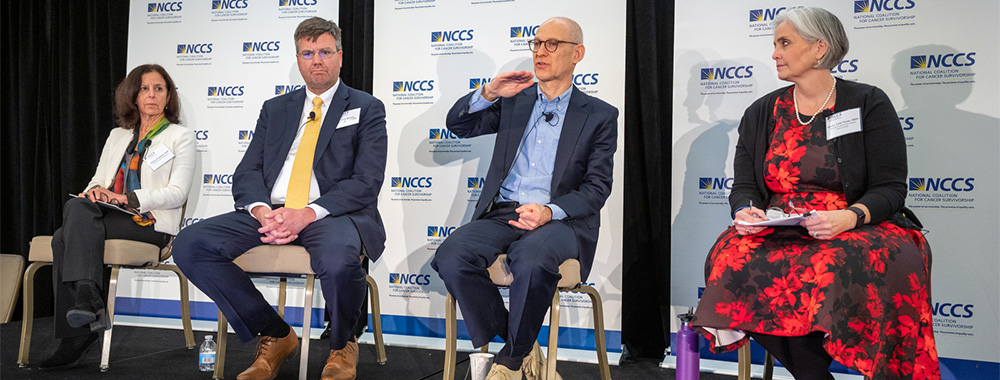
Vice Provost for Global Initiatives
Co-Director of the Healthcare Transformation Institute
University of Pennsylvania Perelman School of Medicine
Tricia Neuman, ScD
Senior Vice President
Executive Director for Program on Medicare Policy
KFF
Executive Director
Bayhealth Cancer Institute
Natalie Stevenson
Cancer Survivor, NCCS Elevate Ambassador
Cancer Community Clubhouse
Shelley Fuld Nasso, MPP (Moderator)
NCCS CEO
Summary
About the Panel Speakers
Ezekiel J. Emanuel, MD, PhD – Univ. of Pennsylvania Perelman School of Medicine
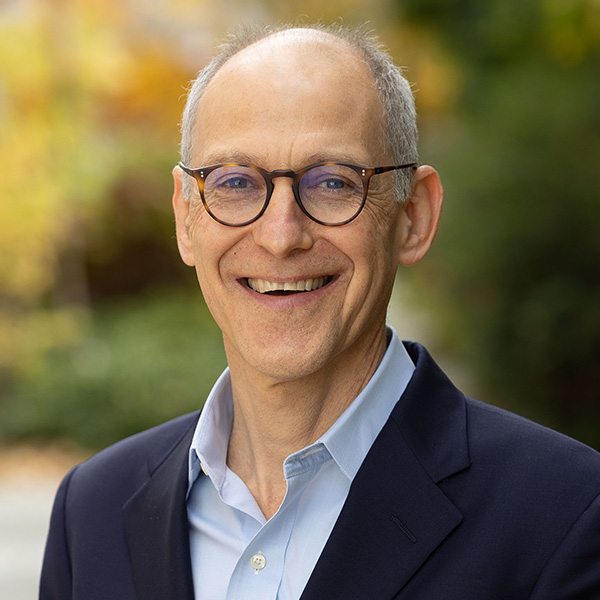 Ezekiel J. Emanuel, MD, PhD
Ezekiel J. Emanuel, MD, PhD
Vice Provost for Global Initiatives
Co-Director of the Healthcare Transformation Institute
University of Pennsylvania Perelman School of Medicine
Ezekiel J. Emanuel is the Vice Provost for Global Initiatives, the Diane v.S. Levy and Robert M. Levy University Professor, and Co-Director of the Healthcare Transformation Institute at the University of Pennsylvania. From January 2009 to January 2011, Dr. Emanuel served as a Special Advisor on Health Policy to the Director of the Office of Management and Budget and National Economic Council. Prior to that he was the founding chair of the Department of Bioethics at the National Institutes of Health from 1997 to August of 2011.
Dr. Emanuel received his M.D. from Harvard Medical School and his Ph.D. in political philosophy from Harvard University. After completing his internship and residency in internal medicine at Boston’s Beth Israel Hospital and his oncology fellowship at the Dana-Farber Cancer Institute, he joined the faculty at the Dana-Farber Cancer Institute. He has since been a visiting professor at the University of Pittsburgh School of Medicine, UCLA, the Brin Professor at Johns Hopkins Medical School, and the Kovitz Professor at Stanford Medical School and visiting professor at New York University Law School.
Dr. Emanuel served on President Clinton’s Health Care Task Force, the National Bioethics Advisory Commission (NBAC), and on the bioethics panel of the Pan-American Healthcare Organization. He has published over 300 articles mainly on health care reform, research ethics, and end of life care. He has also authored or edited 15 books.
Tricia Neuman, ScD – Kaiser Family Foundation
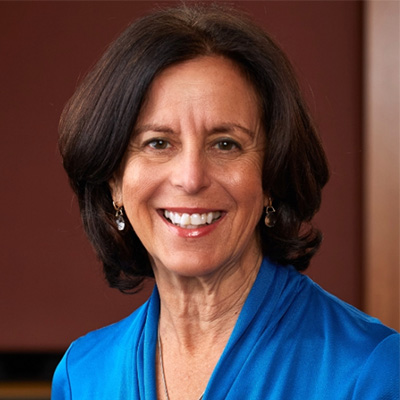 Tricia Neuman, ScD
Tricia Neuman, ScD
Senior Vice President, Executive Director for Program on Medicare Policy
Kaiser Family Foundation
Tricia Neuman is senior vice president of KFF and executive director of its Program on Medicare Policy. She oversees KFF’s policy analysis and research pertaining to Medicare, and health coverage and care for aging Americans and people with disabilities. A widely cited Medicare policy expert, Dr. Neuman focuses on topics such as the health and economic security of older adults; the role of Medicare Advantage plans, Medicare and out-of-pocket spending trends; prescription drug costs, payment and delivery system reforms; and policy options to strengthen Medicare for the future. She has written numerous papers pertaining to Medicare, has been invited several times to present expert testimony before Congressional committees, and has appeared and been quoted as an independent expert by major national media outlets. Dr. Neuman was nominated by President Biden in 2022 to serve as a member of the Board of Trustees of the Medicare, Social Security, and Disability Insurance Trust Funds.
Before joining KFF in 1995, Dr. Neuman served on the professional staff of the Ways and Means Subcommittee on Health in the U.S. House of Representatives and on the staff of the U.S. Senate Special Committee on Aging, working on health and long-term care issues.
Dr. Neuman received a bachelor’s degree from Wesleyan University, a master’s in health finance and management from the Johns Hopkins School of Public Health, and a doctorate in health policy and management, also from the Johns Hopkins School of Public Health.
John Shevock, FACHE, FACMPE – Bayhealth Cancer Institute
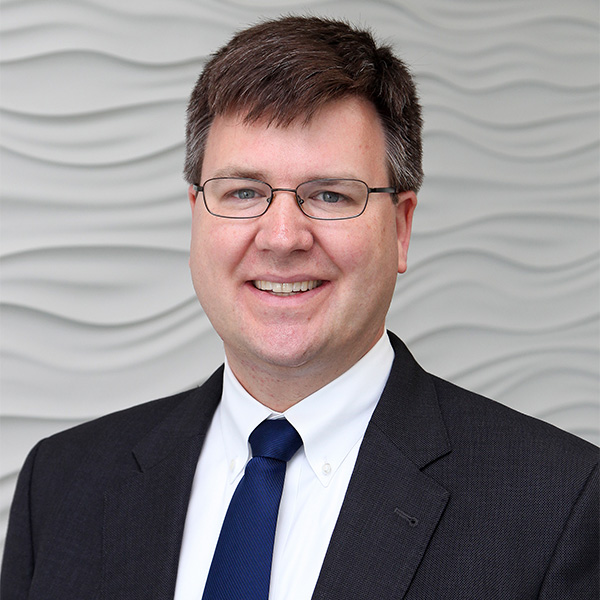 John Shevock, FACHE, FACMPE
John Shevock, FACHE, FACMPE
Executive Director
Bayhealth Cancer Institute
John D. Shevock is the Senior Director, Oncology Service Line and Executive Director, Bayhealth Cancer Institute at Bayhealth Medical Center. He has the honor to work with multidisciplinary teams for over 19 years at Bayhealth to grow and develop cancer care services in central and southern Delaware. Previously, Mr. Shevock worked with principal investigators and research teams at Duke University’s Duke Clinical Research Institute on cardiology clinical research studies throughout the United States and countries around the globe. He was a member of aresearch team at North Carolina State University that partnered with the North Carolina Medical Society to survey physicians throughout North Carolina on managed care insurance and physician information technology use and adoption. Mr. Shevock was also part of a research team at the Pennsylvania State University that investigated managed care markets, telehealth use, and adoption of information technology.
Mr. Shevock is a graduate of North Carolina State University and holds a Bachelor of Science in animal science and a Master of Science in Management. He is a Fellow of the American College of Healthcare Executives and a Fellow of the American College of Medical Practice Executives. He is a member of the Delaware Local Program Council, previously serving in the Chair and Vice Chair roles and represented the Delaware Local Program Council on the Healthcare Leadership Network of the Delaware Valley Board of Directors. Mr. Shevock previously served as a member of ACHE’s Early Careerist Committee, the Delaware Regent’s Council, and a member of the Membership Services Committee for the Delaware Regent’s Council.
Mr. Shevock currently is Board Chair of Delaware Hospice Board of Trustees, Delegate Representative to the Association of Community Cancer Centers, and member of the Delaware
Technical and Community College Terry Campus Advisory Council, Delaware Cancer Consortium’s Delaware Cancer Registry Advisory Council, the Cancer Support Community of Delaware Kent County Advisory Council, and the Preliminary Review Committee for the Delaware Supreme Court. He has previously served as a member of the Board of Professional Responsibility for the Delaware Supreme Court, board member of the Central Delaware Chamber of Commerce, Greater Milford Chamber of Commerce, and is a graduate of the Central Delaware Chamber of Commerce Leadership Central Delaware.
A devoted outdoorsman, Mr. Shevock dedicates his personal time to conservation efforts of wildlife and wetland habitats. He lives in Dover, Delaware with his wife Allison and sons Samuel and Joel.
Natalie Stevenson – NCCS Elevate Ambassador
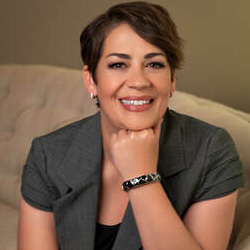 Natalie Stevenson
Natalie Stevenson
NCCS Elevate Ambassador and Stage IV Cancer Survivor
Cancer Community Clubhouse
Natalie Stevenson is a co-founder of Cancer Community Clubhouse and a metastatic breast cancer survivor. With over 17 years of experience working with real estate investors and a leading financial security company as an investment & retirement specialist, Natalie has returned to her roots in human services. Natalie holds a bachelor’s degree in human and family sciences, serves on the Nevada Cancer Coalition’s Survivorship Task Force, is a Metavivor Peer-to-Peer program leader, is a 2022 Elevate Ambassador for the National Coalition for Cancer Survivorship, and a mentor angel with Imerman Angels.
Originally diagnosed as a young, single mother, Natalie especially values and enjoys spending time with her son, practicing mindfulness techniques including meditation, yoga & QiGong, and she escapes to the natural retreats the region has to offer—especially Lake Tahoe! As a survivor, she is committed to helping others find a renewed sense of happiness despite going through cancer as a life event. Above all, she aims to create a space for connection so others do not have to go through the journey alone.
Shelley Fuld Nasso, MPP – NCCS CEO
 Shelley Fuld Nasso, MPP has served as Chief Executive Officer of NCCS since October 2013. Prior to joining NCCS, Shelley served in leadership roles at Susan G. Komen, where she leveraged Komen’s grassroots network in Washington, DC, and in state capitals. Under her leadership, Komen successfully secured $80 million in state funding for cancer screening and treatment for uninsured and under-insured women.
Shelley Fuld Nasso, MPP has served as Chief Executive Officer of NCCS since October 2013. Prior to joining NCCS, Shelley served in leadership roles at Susan G. Komen, where she leveraged Komen’s grassroots network in Washington, DC, and in state capitals. Under her leadership, Komen successfully secured $80 million in state funding for cancer screening and treatment for uninsured and under-insured women.
Shelley has also served as Director of Community Philanthropy at The Dallas Foundation and held management positions at communications and technology enterprises. She is a graduate of Rice University and holds a Master of Public Policy from the Harvard Kennedy School.
Shelley’s commitment to the work of NCCS is strongly tied to the experiences in the cancer care system of her dear friend, Dr. Brent Whitworth, a beloved physician who was diagnosed with stage IV cancer days before his 42nd birthday and who passed away 19 months later. Through Brent’s experiences, Shelley witnessed the strengths and flaws of the cancer care system and embraces the notion that policy change can make cancer care better for patients and caregivers.
Shelley and her husband Michael live in Maryland and are the parents of three young boys.
Drug Shortages
Panel Discussion
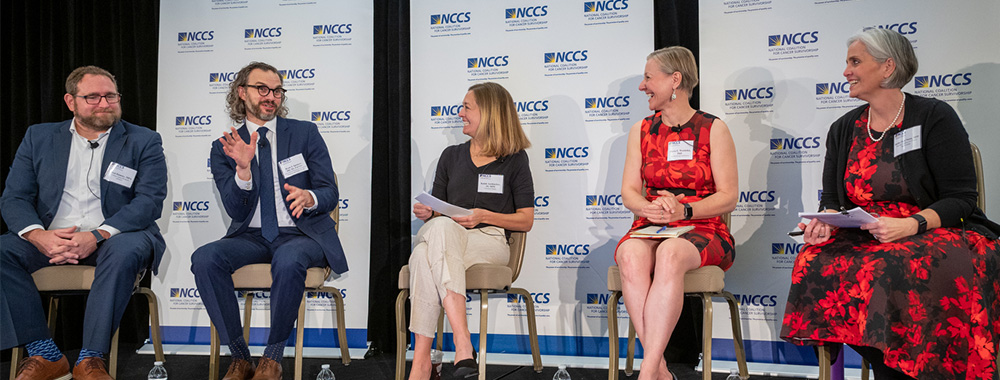
Executive Vice President, Regulatory Compliance & Deputy General Counsel
Greenleaf Health
Chad Ramsey, MPA
Vice President, Policy
Ovarian Cancer Research Alliance
Ryan Spencer, MD, MS, FACOG
Associate Professor
University of Wisconsin School of Medicine and Public Health
Senior Fellow
Schaeffer Initiative on Health Policy
The Brookings Institution
Shelley Fuld Nasso, MPP (Moderator)
NCCS CEO
Summary
About the Panel Speakers
Kalah Auchincloss, JD, MPH – Greenleaf Health
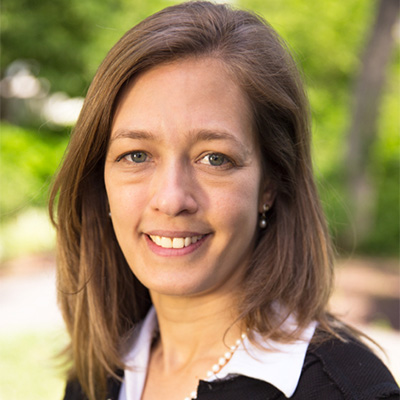 Kalah Auchincloss, JD, MPH
Kalah Auchincloss, JD, MPH
Executive Vice President, Regulatory Compliance & Deputy General Counsel
Greenleaf Health
Kalah Auchincloss has 15 years of food and drug legal, policy, and regulatory experience at the FDA, on Capitol Hill, and in the private sector. Kalah spent six years at FDA, including, as Deputy Chief of Staff for two FDA Commissioners: Dr. Robert Califf and Dr. Scott Gottlieb. As Deputy Chief of Staff, Kalah worked with senior FDA leadership to manage crises, develop policy decisions, implement communications strategies, and liaise with the Department of Health and Human Services, the White House, and other agencies.
Kalah was also a primary point of contact in the immediate Office of the Commissioner for the six FDA Centers and other components of the Commissioner’s Office. Prior to that role, Kalah spent time on Capitol Hill as the FDA detailee to the Senate Committee on Health, Education, Labor, and Pensions, working on the 21st Century Cures Act and other FDA-related legislation. She has also served in FDA’s Center for Drug Evaluation and Research (CDER) as a regulatory counsel in the Office of Regulatory Policy, and as Director of CDER’s Office of Unapproved Drugs and Labeling Compliance in the Office of Compliance, leading a team of more than 50 staff working on pharmacy compounding, unapproved drugs, over-the-counter drugs, and other enforcement issues.
As a Senior Vice President at Greenleaf, Kalah is continuing her commitment to public health by providing strategic counsel to clients on compliance, enforcement and policy matters. Before joining FDA, Kalah was an associate at the law firm Foley Hoag LLP, in the firm’s health care practice group. Kalah holds a B.A. with honors from Williams College, a J.D. with honors from Georgetown University Law Center, and an M.P.H. from Harvard University.
Chad Ramsey – Ovarian Cancer Research Alliance
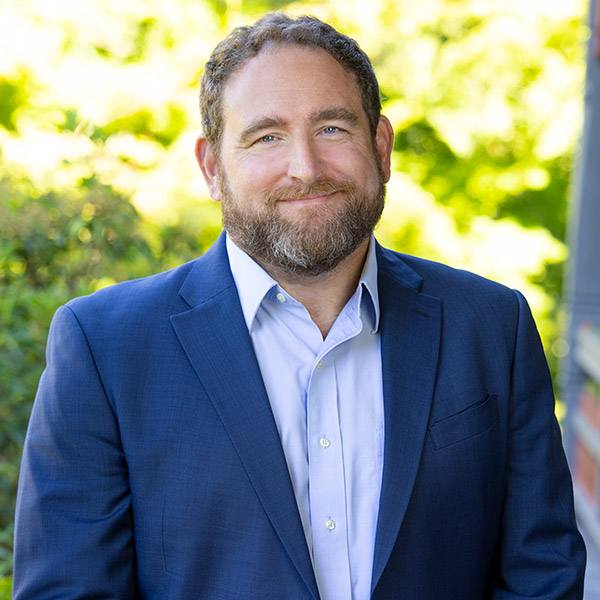 Chad Ramsey, MPA
Chad Ramsey, MPA
Vice President, Policy
Ovarian Cancer Research Alliance
Chad Ramsey joined OCRA in 2015 to oversee the organization’s public policy including the development and implementation of a national agenda for ovarian cancer. As Vice President, Policy, Chad works with policymakers on Capitol Hill and organizational allies to implement the policy agenda and achieve OCRA priorities. He also serves as a staff liaison to the the Congressional Ovarian Cancer Caucus and monitors efforts within federal agencies, including the CDC, FDA, NIH and CMS as they relate to the OCRA’s policy agenda.
Prior to joining OCRA, Chad was Director of Legislative Relations for the National Marrow Donor Program where he worked to ensure that patients in need of a bone marrow donor were able to find a suitable match. Chad also served as Director of Federal Legislation for the Brady Campaign to Prevent Gun Violence and has more than 18 years of experience in public policy and advocacy in the non-profit sector.
Chad graduated with honors from Hobart College with a degree in English and earned his Master’s Degree from the Maxwell School of Citizenship and Public Affairs at Syracuse University.
Ryan Spencer, MD, MS – University of Wisconsin School of Medicine and Public Health
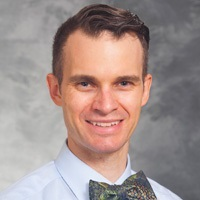 Ryan Spencer, MD, MS, FACOG
Ryan Spencer, MD, MS, FACOG
Associate Professor
University of Wisconsin School of Medicine and Public Health
Dr. Spencer is a gynecologic oncologist at the University of Wisconsin and an assistant professor in the Division of Gynecologic Oncology at the University of Wisconsin School of Medicine and Public Health where he is also the Obstetrics and Gynecology Residency Program Director and the associate director of the Gynecologic Oncology fellowship-training program. He has won a number of teaching awards from both medical students and for the surgical teaching of resident physicians. Dr. Spencer has given talks in the Wisconsin region and nationally regarding the use of minimally invasive sentinel lymph node biopsies for gynecologic cancers, optimizing care for patients with gynecologic cancer syndromes and incorporating techniques to improve the quality of life of cancer patients. In addition, Dr. Spencer earned an MS in Clinical Investigation.
Dr. Spencer has received numerous funding awards for his research that looks at developing interventions to improve cancer patients’ quality of life during treatment and in the survivorship period.
Additionally, he has multiple national research presentations looking at decreasing health disparities in gynecologic cancer care and ways to improve the funding gap for gynecologic cancer clinical trials.Dr. Spencer believes that the best care is delivered when patients and their doctors work together -using the best available information with cutting-edge advancements to deliver a high quality, individualized treatment plan that maximizes both the chance for cure and a patient’s quality of life. Dr. Spencer is the Chair of the Society for Gynecologic Oncology’s Legislative and Regulatory Affairs Committee and is a big proponent of clinical trials to keep patients at the forefront of the latest innovations in gynecologic cancer care.
Marta E. Wosińska, PhD – The Brookings Institution
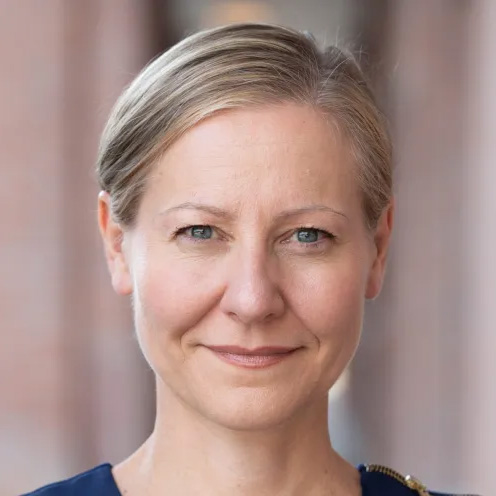 Marta E. Wosińska, PhD
Marta E. Wosińska, PhD
Senior Fellow
Schaeffer Initiative on Health Policy
The Brookings Institution
Marta E. Wosińska, Ph.D., is a senior fellow at the Brookings Schaeffer Initiative on Health Policy. She is a healthcare economist with a particular expertise in prescription drugs and experience spanning academia and federal government.
Dr. Wosińska’s government experience includes serving as director of the Bureau of Economics at the Federal Trade Commission, chief healthcare economist in the Office of Inspector General (OIG) at the U.S. Department of Health and Human Services, and director of economics staff at the U.S. Food and Drug Administration (FDA) Center for Drug Evaluation & Research. Dr. Wosińska also served as economic advisor to the U.S. Senate Finance Committee, providing drug market analysis and expert guidance for the Committee’s bipartisan investigative and legislative work on drug pricing.
Among academic institutions, she was consulting professor and deputy director for policy at the Duke-Margolis Center for Health Policy at Duke University and an assistant professor of marketing at the Harvard Business School. Dr. Wosińska serves as an expert witness in pharmaceutical antitrust cases.
Shelley Fuld Nasso, MPP – NCCS CEO
 Shelley Fuld Nasso, MPP has served as Chief Executive Officer of NCCS since October 2013. Prior to joining NCCS, Shelley served in leadership roles at Susan G. Komen, where she leveraged Komen’s grassroots network in Washington, DC, and in state capitals. Under her leadership, Komen successfully secured $80 million in state funding for cancer screening and treatment for uninsured and under-insured women.
Shelley Fuld Nasso, MPP has served as Chief Executive Officer of NCCS since October 2013. Prior to joining NCCS, Shelley served in leadership roles at Susan G. Komen, where she leveraged Komen’s grassroots network in Washington, DC, and in state capitals. Under her leadership, Komen successfully secured $80 million in state funding for cancer screening and treatment for uninsured and under-insured women.
Shelley has also served as Director of Community Philanthropy at The Dallas Foundation and held management positions at communications and technology enterprises. She is a graduate of Rice University and holds a Master of Public Policy from the Harvard Kennedy School.
Shelley’s commitment to the work of NCCS is strongly tied to the experiences in the cancer care system of her dear friend, Dr. Brent Whitworth, a beloved physician who was diagnosed with stage IV cancer days before his 42nd birthday and who passed away 19 months later. Through Brent’s experiences, Shelley witnessed the strengths and flaws of the cancer care system and embraces the notion that policy change can make cancer care better for patients and caregivers.
Shelley and her husband Michael live in Maryland and are the parents of three young boys.
Cancer Policy Roundtable Fall 2023 Sponsors


